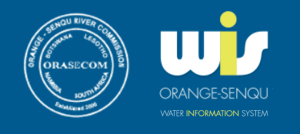Publications
Several full-colour books and booklets have been published as ORASECOM reports.
Some of these represent compilations of information and/or share the results of milestone scientific studies carried out to fill knowledge gaps about the basin and its water resources.
Others share the experiences and lessons learnt and provide guidelines for interventions to address specific environmental issues.
More detailed technical reports are provided under the Documents section of this page.
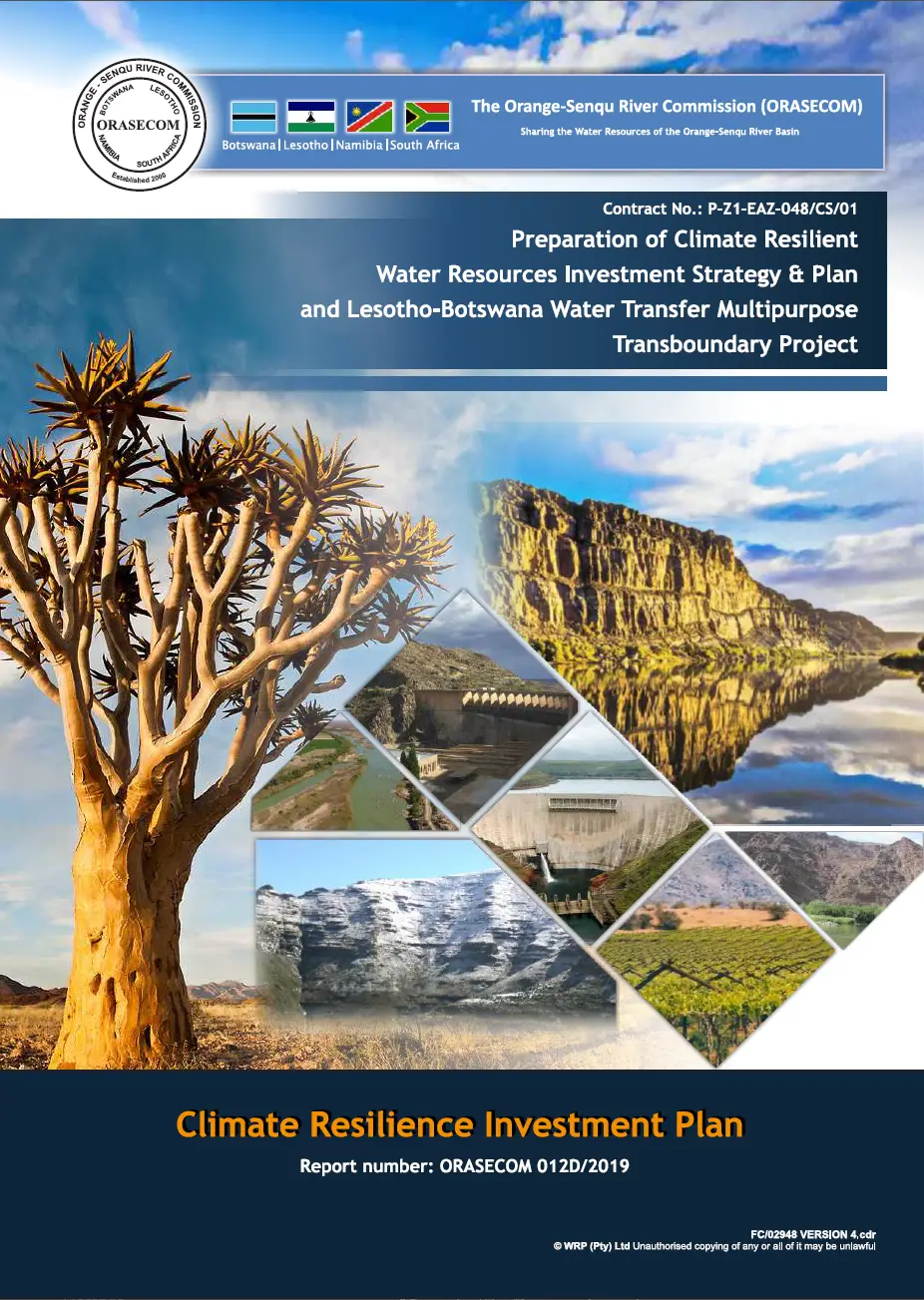 | Climate Resilient Water Resources Investment Plan.This brochure provides an overview of the process and the outcomes from the development of a Climate Resilient Water Resources Investment Plan for the Orange-Senqu River Basin. It provides and overview of the Integrated Water Resources Development Plan, key strategic actions, core scenario projects, funding options and a road map of the way forward. |
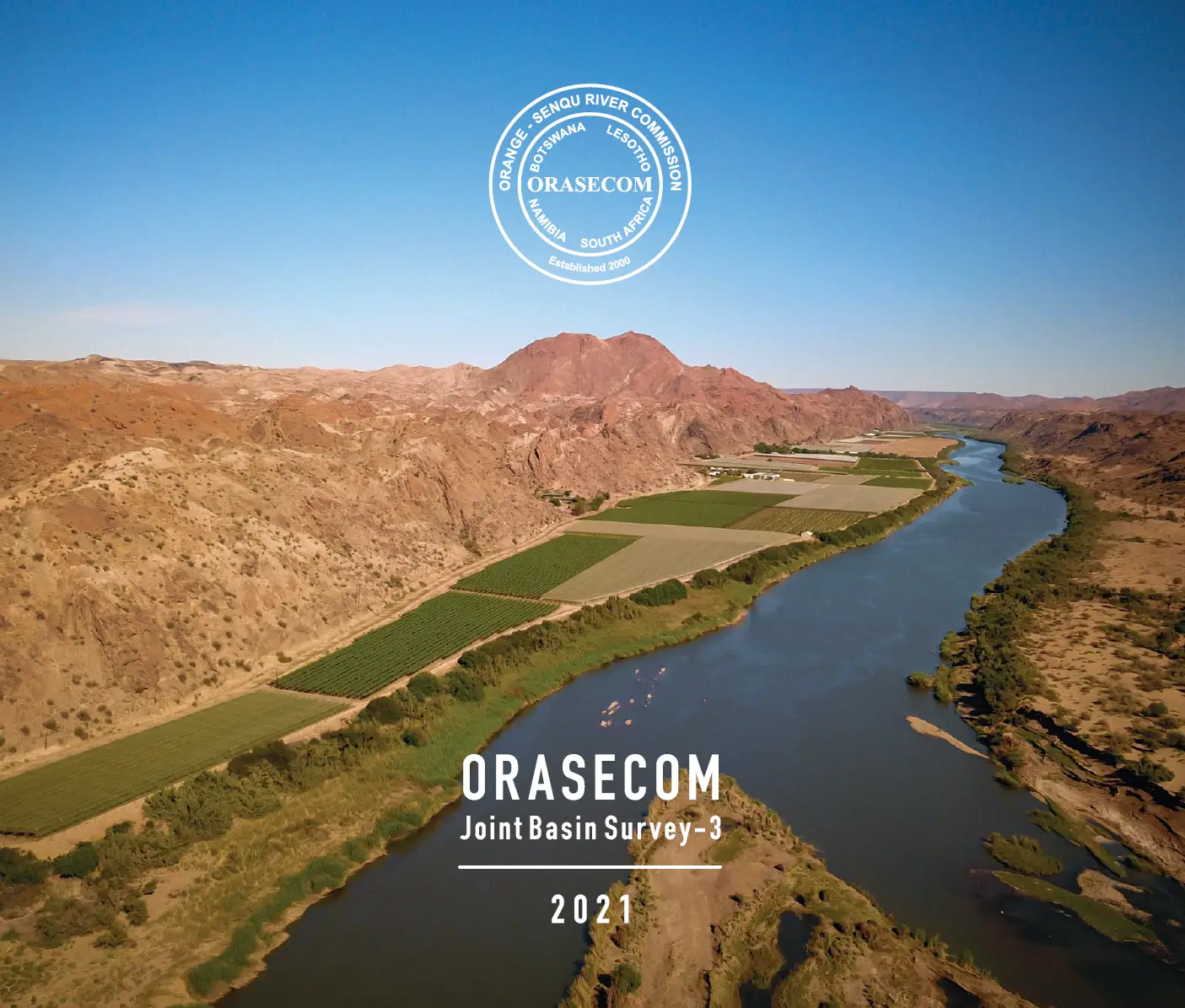 | Joint Basin Survey 3: 2021This booklet provides an overview of the Aquatic Ecosystem Health monitoring program, known as the Joint Basin Survey (JBS), conducted every five years by Basin States of ORASECOM. The first JBS took place in 2010 and the second in 2015. The primary driving reason for the JBS is to try and assess the health of the river system that so many people rely on. The Orange-Senqu River Basin is one of the highly developed river basins in the world. It faces a lot of pressure from various economic activities. |
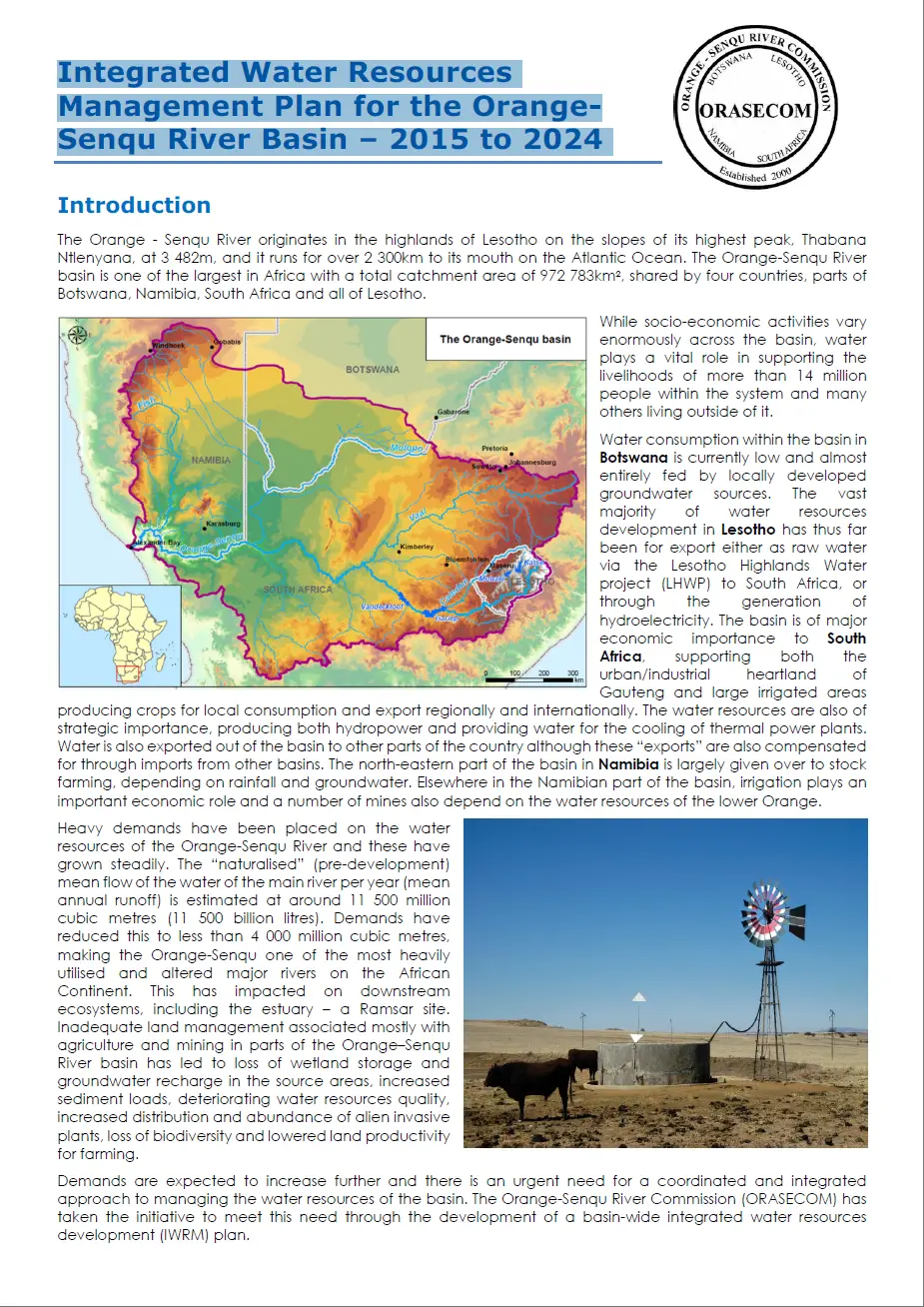 | Integrated Water Resources Management Plan for the Orange-Senqu River Basin - 2015 to 2024This brochure provides an overview of the Integrated Water Resources Management Plan developed for the Orange-Senqu River Basin. It describes the initiative, ORASECOM's Vision for the Basin, the Strategic Framework, the Action Areas and Strategic Actions for the Basin. |
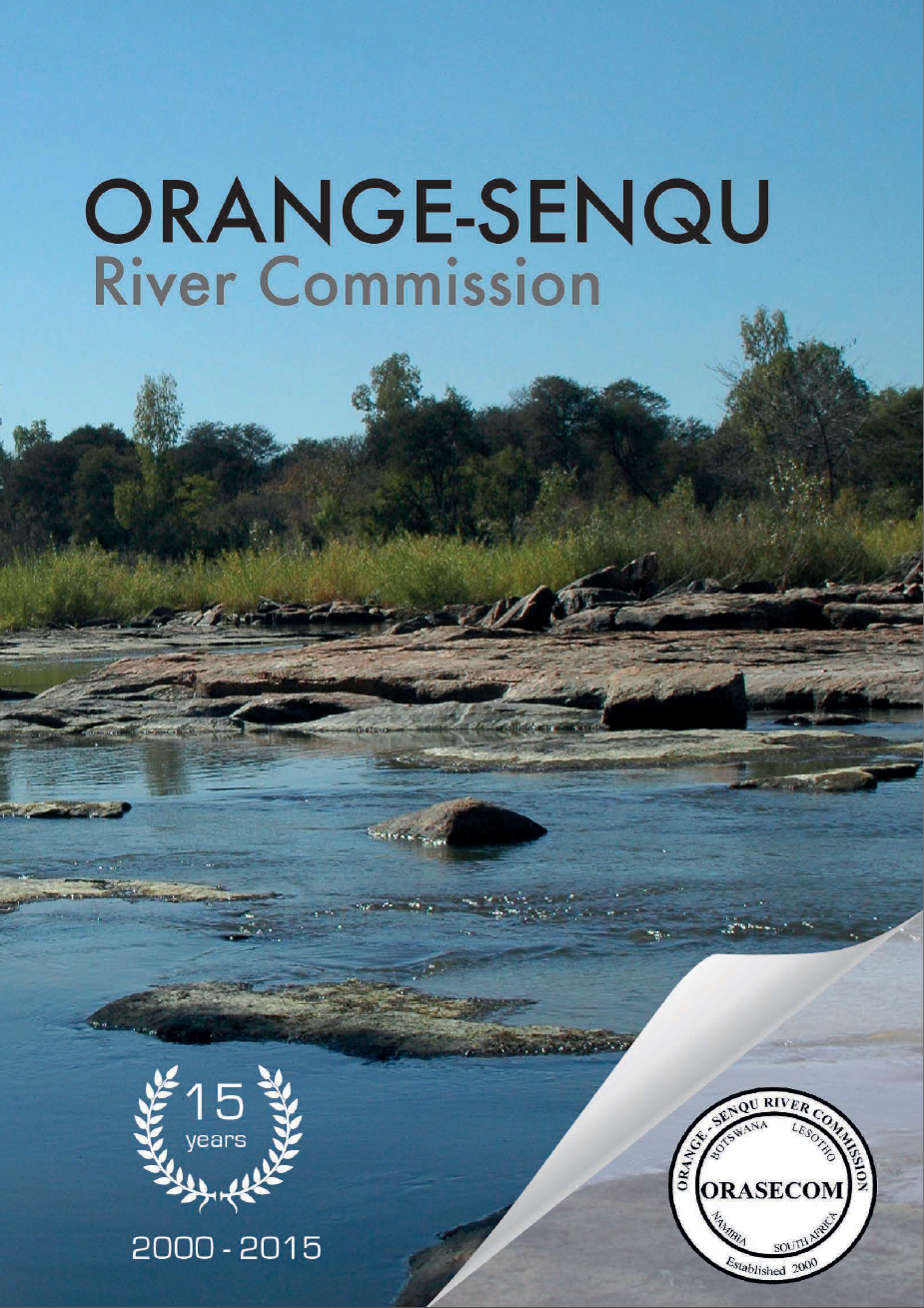 | ORASECOM 15-Year ReportThis report seek to provide a reflective and analytical overview of transboundary water cooperation within the Orange-Senqu River basin, and by its nature does not seek to detail progress on specific projects and initiatives undertaken by the Commission. The report will provide some baseline for future reflections and serve as a benchmark for evaluations and assessments of accomplishments of transboundary cooperation with particular focus on peculiarities of the Orange-Senqu River Basin and the four member states. |
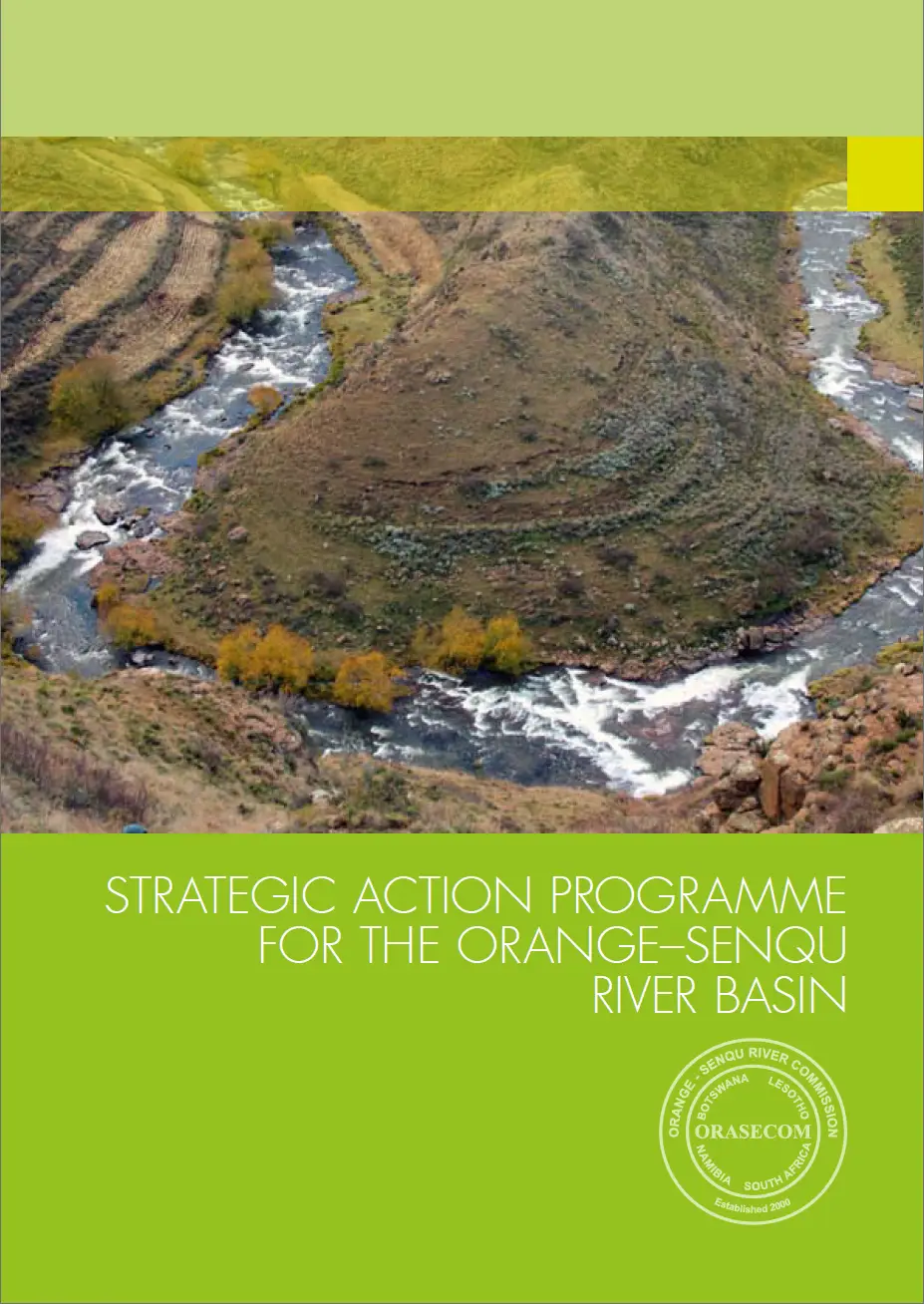 | Strategic Action Programme for the Orange Senqu River BasinThe Orange–Senqu Strategic Action Programme (SAP) is a negotiated document that provides a basin-wide framework for the implementation of a prioritised set of national and joint transboundary actions and investments to address jointly agreed priority environmental concerns in the Orange–Senqu River basin. The SAP is endorsed at political (ministerial) level and, together with the related Action Plans of the four basin states, provides a basis for the implementation of SAP priority actions at national and basin level, and the integration of transboundary and basin concerns into national legislative, policy and budget decision-making processes. The focus of the SAP is on transboundary and/or common environmental concerns, i.e. those that can only be addressed through collective action of more than one, or even all, basin states. The SAP is aligned with the Action Plans of the four basin states. The Action Plans prioritise the environmental concerns identified by the TDA from a national perspective and identify suitable responses that can be implemented at national level only. The process was facilitated by Daniel Malzbender. Published in 2014. Copyright © ORASECOM |
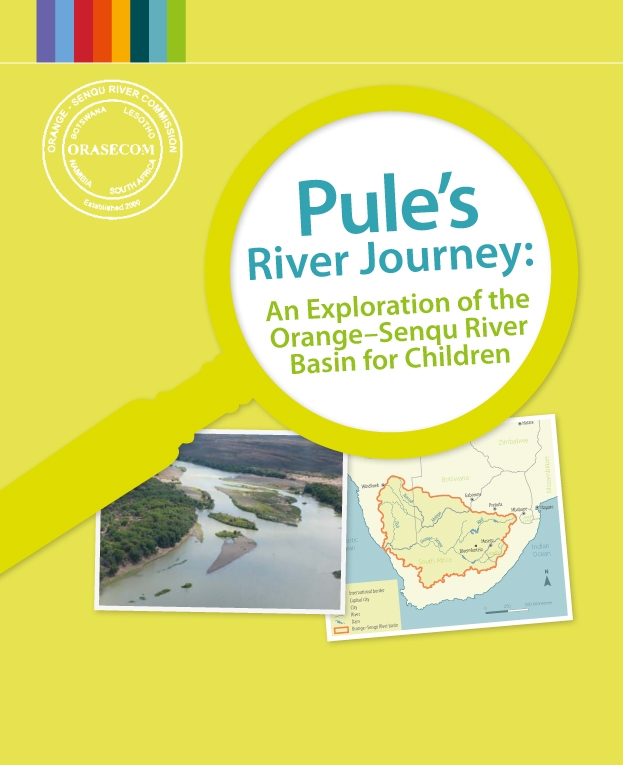 | Pule’s River Journey: An Exploration of the Orange-Senqu River Basin for ChildrenDrawing on the Orange–Senqu River Basin Transboundary Diagnostic Analysis (2014) and a number of other relevant sources, this children’s book highlights the characteristics of the river basin – its resources, the people and economies it supports, and its problems – in a way that is accessible to a younger audience. Designed for the future custodians of this river basin and the resources it provides, this book gives an insight into the diversity of the basin and the importance of a common understanding of pertinent management challenges to the nations that share the river basin and which collaborate to address them. First published in 2014; © ORASECOM 2014; ISBN 978-0-620-61406-1 |
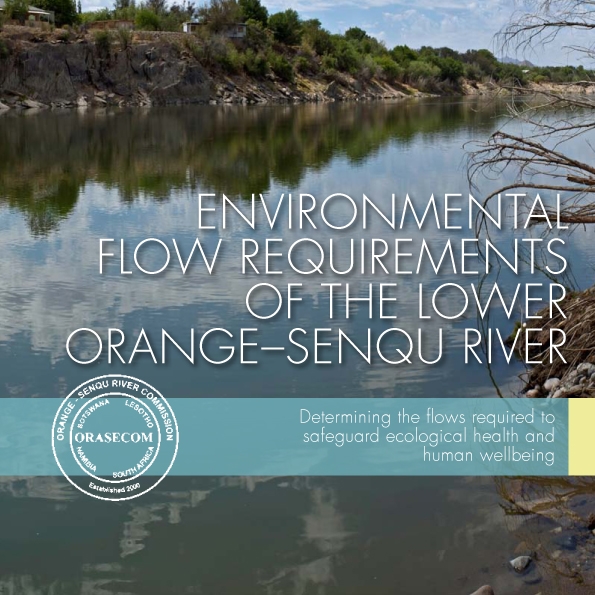 | Environmental Flow Requirements of the Lower Orange–Senqu RiverDetermining the Flows Required to Safeguard Ecological Health and Human WellbeingIn 2012–2013, ORASECOM’s UNDP–GEF-funded Orange–Senqu Strategic Action Programme undertook a research project along the lower Orange and Fish rivers, and at the ecologically sensitive and important estuary, to determine the ecological states of these sections of the river and the environmental flow regime required to improve them. This booklet is based on this research and other related documents and studies. It provides a summary of the process and findings in an attractive and accessible format that will provide a handy reference for technical personnel and policy-makers, and enhance understanding of this complex subject. It also provides recommendations for policy and programme action. First published in 2014; © ORASECOM 2014; ISBN 978-0-620-61408-5 |
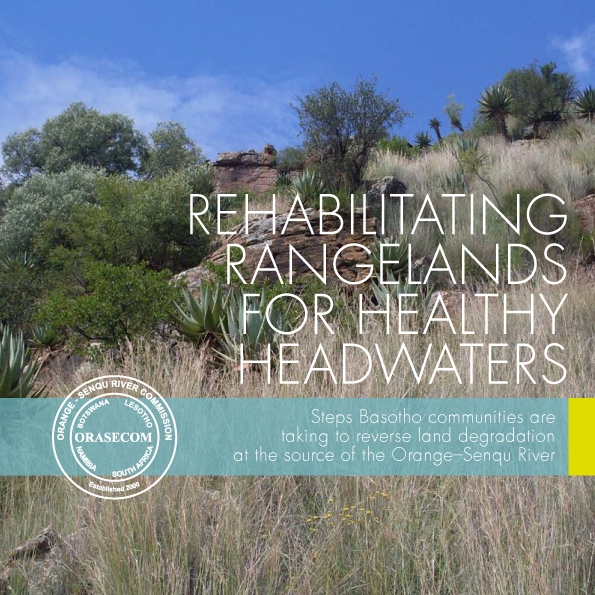 | Rehabilitating Rangelands for Healthy HeadwatersSteps Basotho Communities are Taking to Reverse Land Degradation at the Source of the Orange–Senqu RiverThis booklet is based on a demonstration project to address land degradation in the Mount Moorosi area of Lesotho. The project was initiated to test and demonstrate practical methods for rehabilitating these rangelands, which form the headwaters of important tributaries to the Orange–Senqu, through the active participation of community members and introduce improved and alternative livelihood options. This booklet describes the problem faced by people living in the area, the steps they have taken to address them, the successes they have achieved and the lessons learnt along the way. First published in 2014; © ORASECOM 2014; ISBN 978-0-620-61407-8 |
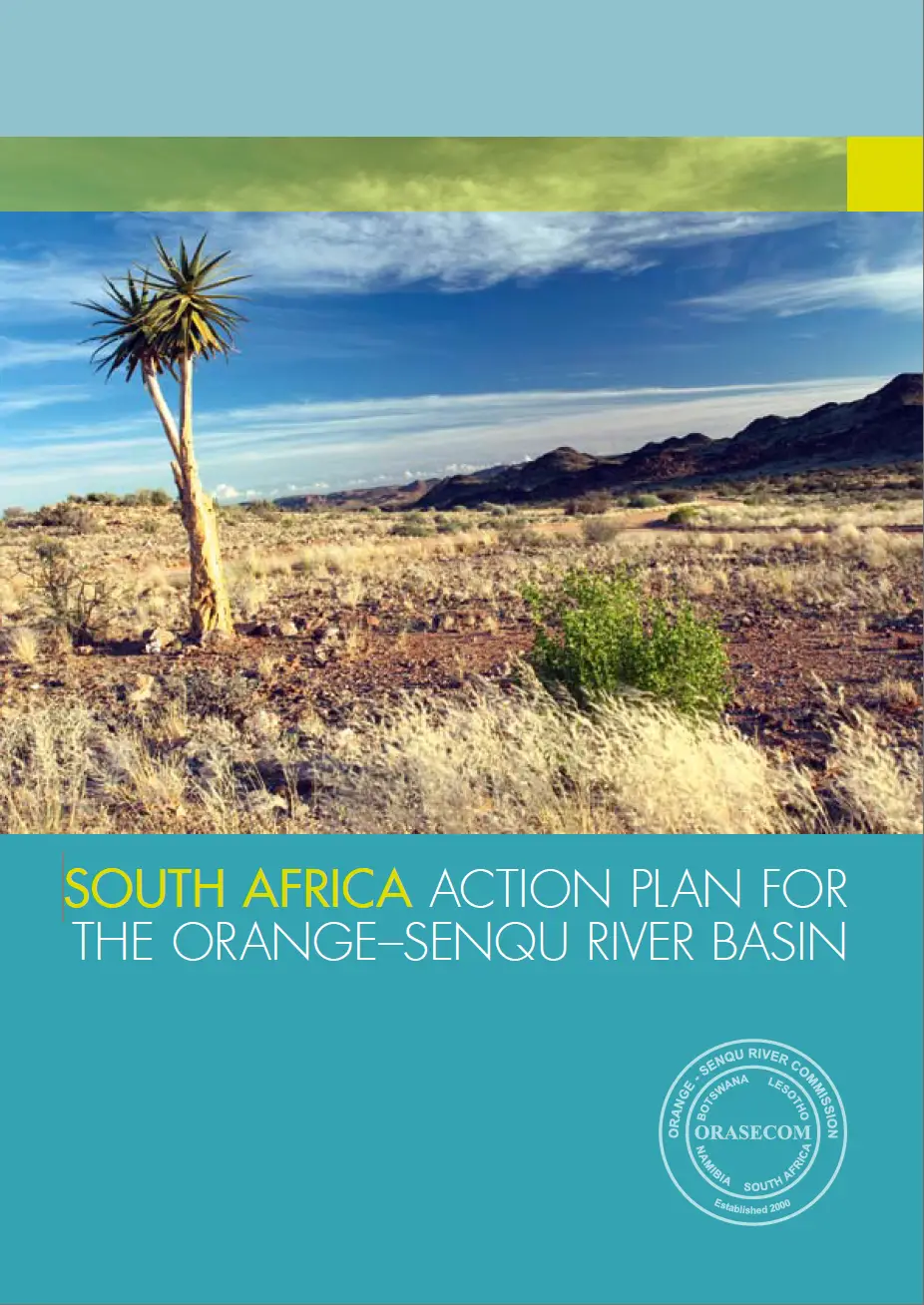 | South Africa Environmental Action PlanThe Action Plans are strategic implementation plans for addressing priority environmental concerns in the national part of the Orange–Senqu River basin. They are closely aligned with the Orange–Senqu Strategic Action Programme (SAP), a programme addressing priority environmental concerns at the basin-wide level. The Action Plans are critical tools for the implementation of SAP priority actions at national level and the integration of transboundary and basin concerns into national legislative, policy and budget decision-making processes. In the context of the Orange–Senqu River, the Action Plans (and the SAP) are closely linked with the basin-wide Orange–Senqu IWRM Plan, together essentially forming the environmental component of the IWRM Plan. The process was facilitated by Brian Hollingworth. Published in 2014. Copyright © ORASECOM |
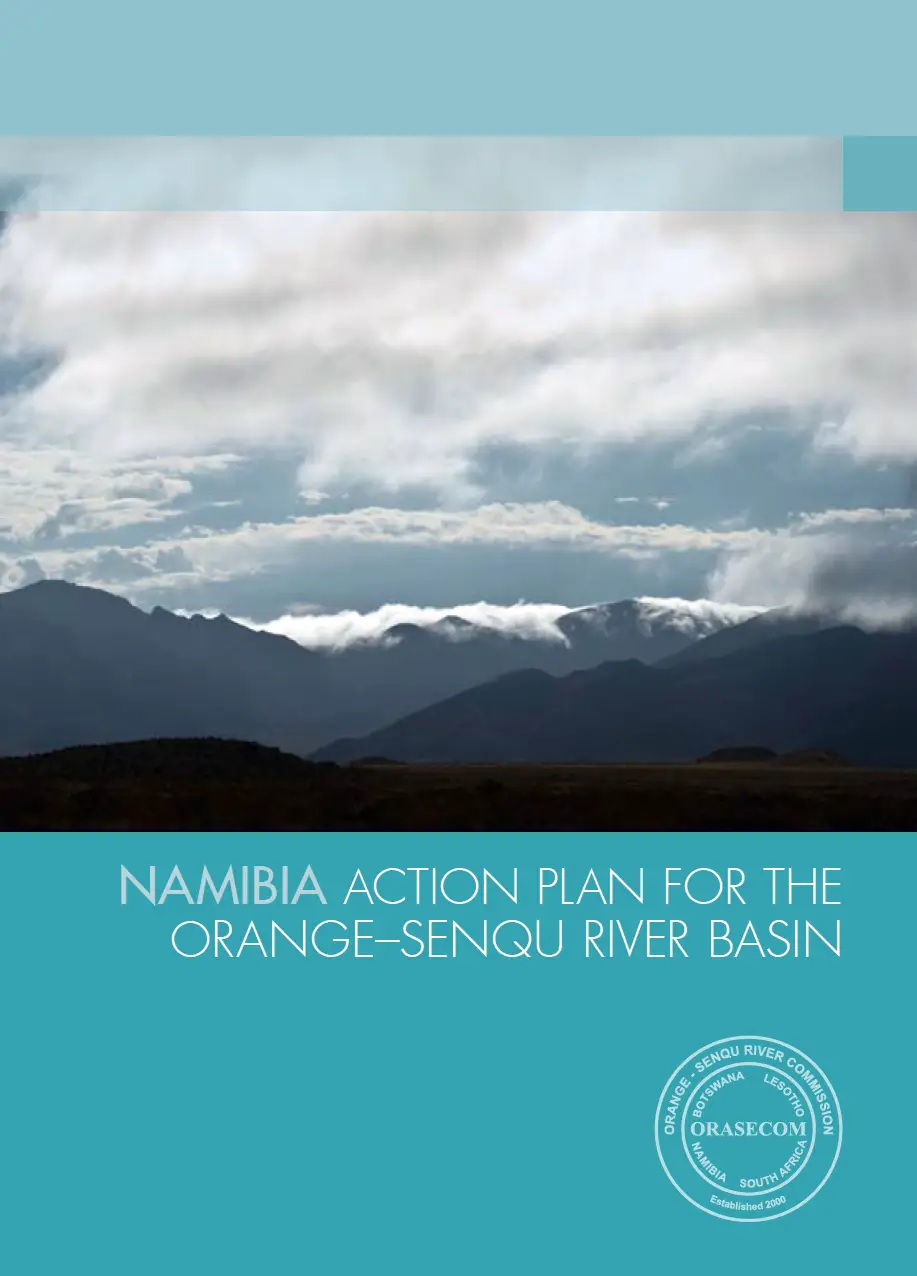 | Namibia Environmental Action PlanThe Action Plans are strategic implementation plans for addressing priority environmental concerns in the national part of the Orange–Senqu River basin. They are closely aligned with the Orange–Senqu Strategic Action Programme (SAP), a programme addressing priority environmental concerns at the basin-wide level. The Action Plans are critical tools for the implementation of SAP priority actions at national level and the integration of transboundary and basin concerns into national legislative, policy and budget decision-making processes. In the context of the Orange–Senqu River, the Action Plans (and the SAP) are closely linked with the basin-wide Orange–Senqu IWRM Plan, together essentially forming the environmental component of the IWRM Plan. The process was facilitated by Viviane Kinyaga. Published in 2014. Copyright © ORASECOM |
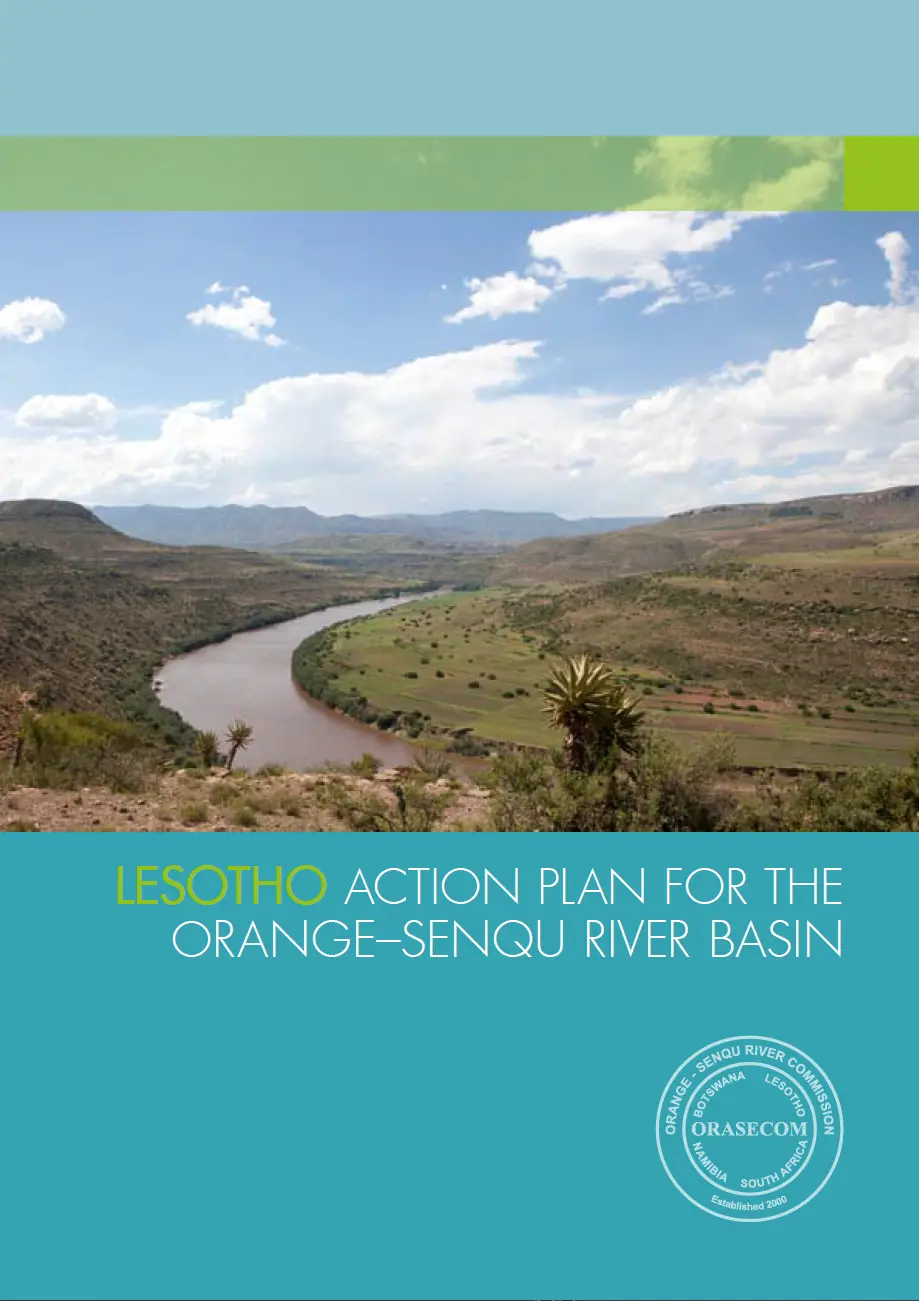 | Lesotho Environmental Action PlanThe Action Plans are strategic implementation plans for addressing priority environmental concerns in the national part of the Orange–Senqu River basin. They are closely aligned with the Orange–Senqu Strategic Action Programme (SAP), a programme addressing priority environmental concerns at the basin-wide level. The Action Plans are critical tools for the implementation of SAP priority actions at national level and the integration of transboundary and basin concerns into national legislative, policy and budget decision-making processes. In the context of the Orange–Senqu River, the Action Plans (and the SAP) are closely linked with the basin-wide Orange–Senqu IWRM Plan, together essentially forming the environmental component of the IWRM Plan. The process was facilitated by Palesa Selloane Mokorosi. Published in 2014. Copyright © ORASECOM |
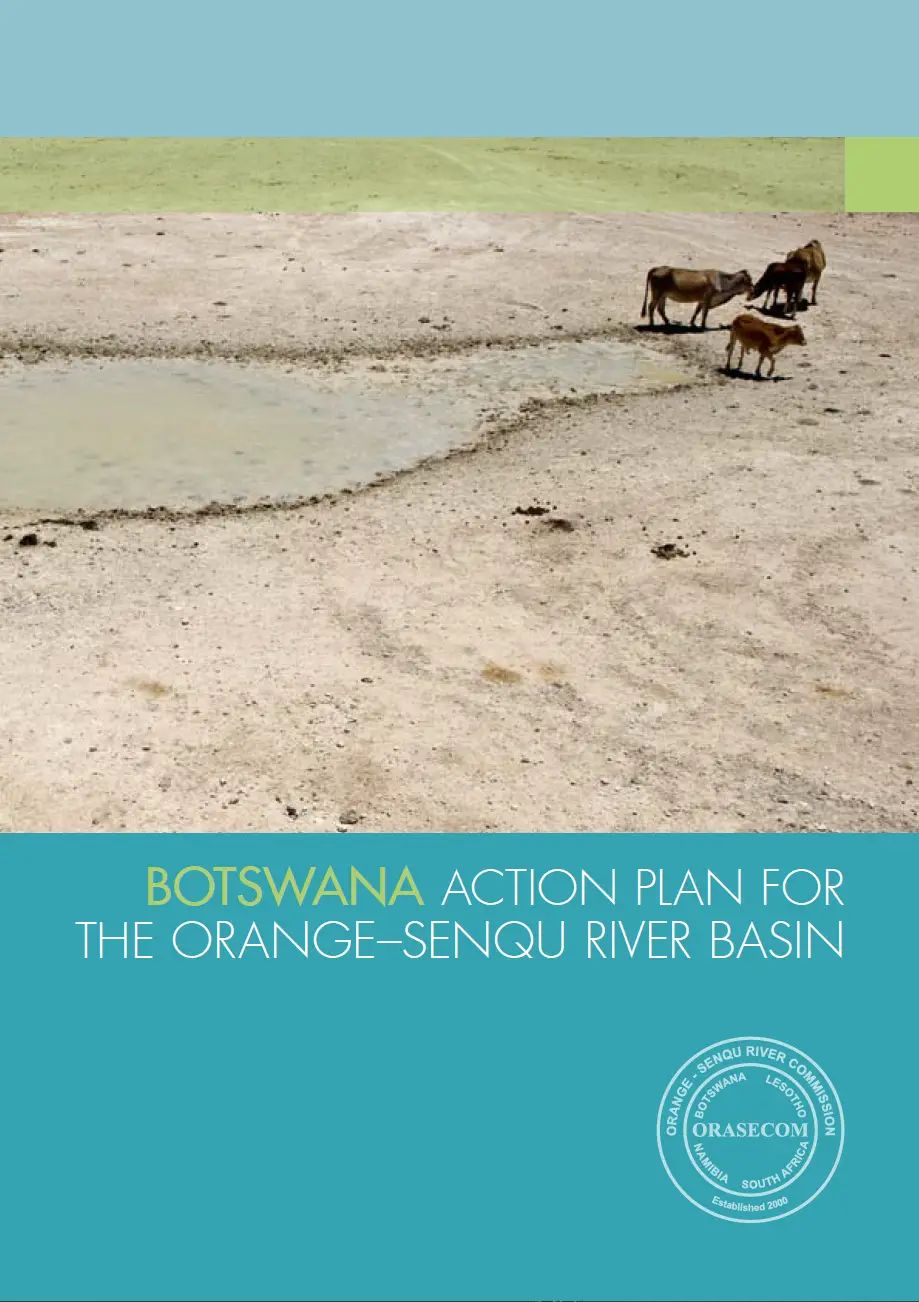 | Botswana Environmental Action PlanThe Action Plans are strategic implementation plans for addressing priority environmental concerns in the national part of the Orange–Senqu River basin. They are closely aligned with the Orange–Senqu Strategic Action Programme (SAP), a programme addressing priority environmental concerns at the basin-wide level. The Action Plans are critical tools for the implementation of SAP priority actions at national level and the integration of transboundary and basin concerns into national legislative, policy and budget decision-making processes. In the context of the Orange–Senqu River, the Action Plans (and the SAP) are closely linked with the basin-wide Orange–Senqu IWRM Plan, together essentially forming the environmental component of the IWRM Plan. The process was facilitated by Felix Monggae. Published in 2014. Copyright © ORASECOM |
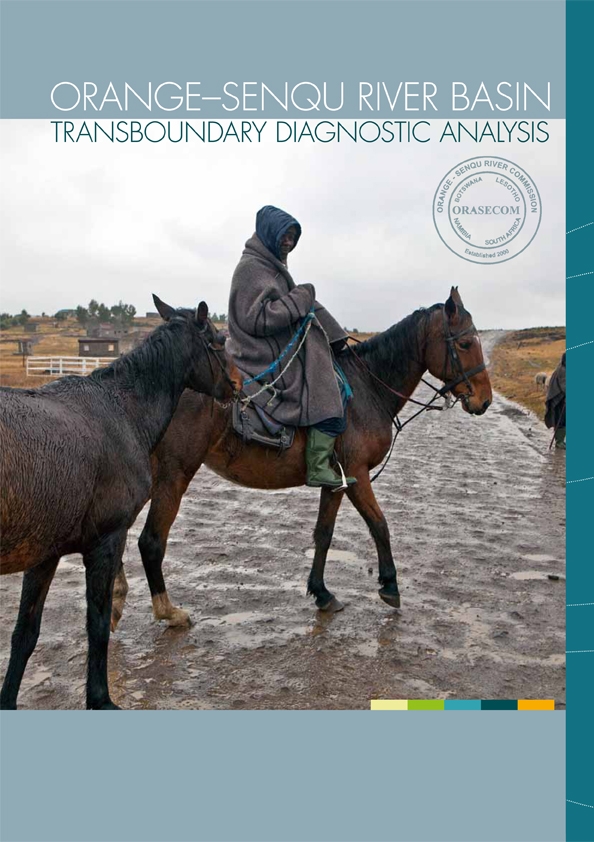 | Orange–Senqu River Basin Transboundary Diagnostic AnalysisThis comprehensive document consolidates the findings and recommendations of the Preliminary Transboundary Diagnostic Analysis of the Orange–Senqu River Basin (2008). It provides a wealth of information on the river basin, including information from more recent studies on water balance, sediment loads, water quality, climate change, environmental flow requirements and irrigated agriculture, amongst others. In addition, it provides causal chain analyses of the major transboundary environmental problems, which were prioritised, revised and validated by recognised experts from each of the basin states. First published in 2014; © ORASECOM 2014; ISBN 978-0-620-60208-2 |
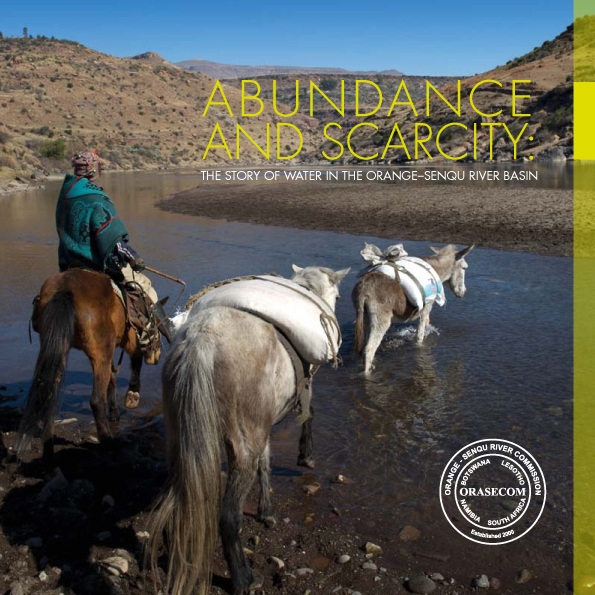 | Abundance and ScarcityThe Story of Water in the Orange–Senqu River BasinThis publication draws on the Orange–Senqu River Basin Transboundary Diagnostic Analysis (2014) and a number of other relevant sources. It is told through the pen of Greg Marinovich, a South African Pulitzer-Prize-winning photojournalist and author, and seen through the camera lenses of Greg and Leonie Marinovich. This book takes the reader on an illustrative journey through the basin from source to sea, highlighting the benefits drawn from this river basin and the challenges facing those living there and those managing these vital water resources. First published in 2014; © ORASECOM 2014; ISBN 978-0-620-60180-1 |
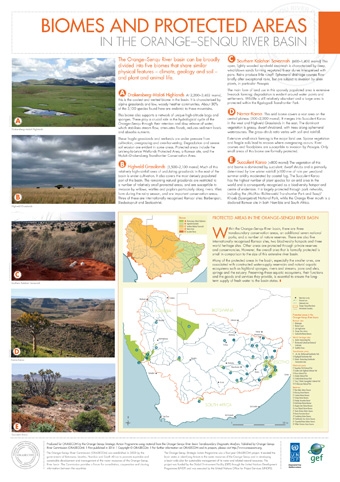 | Set of posters about water and related issues in the Orange–Senqu RiverThis set of posters covers biomes and protected areas, irrigation, geology, invasive alien plants, declining water quality and harnessing water resources in the Orange–Senqu river basin. The information contained in the posters was gleaned from the Orange–Senqu River Basin Transboundary Diagnostic Analysis. |
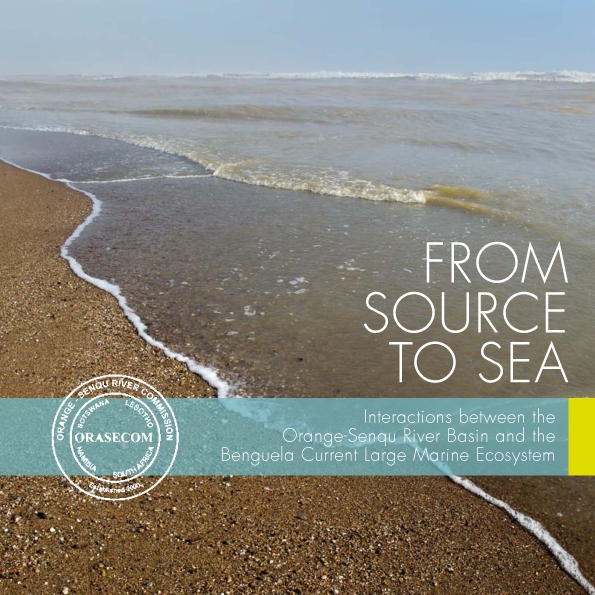 | From Source to SeaInteractions between the Orange–Senqu River Basin and the Benguela Current Large Marine EcosystemBased on a more detailed scoping report and workshop, this booklet provides a comprehensive, yet succinct, summary of the interactions between the Orange–Senqu River and the Benguela Current ecosystem. This publication is useful for managers, while its colourful and attractive design, and accessible information makes it appealing to a much broader audience. Paving the way for future joint actions between the Orange–Senqu and Benguela Current commissions, the project was invited to present this booklet at the 2013 Stockholm Water Week. Written by Sue Matthews with scientific contributions by Drs Barry Clark and Stephen Lamberth First published in 2012; © ORASECOM 2012; ISBN 978-0-620-55030-7 |
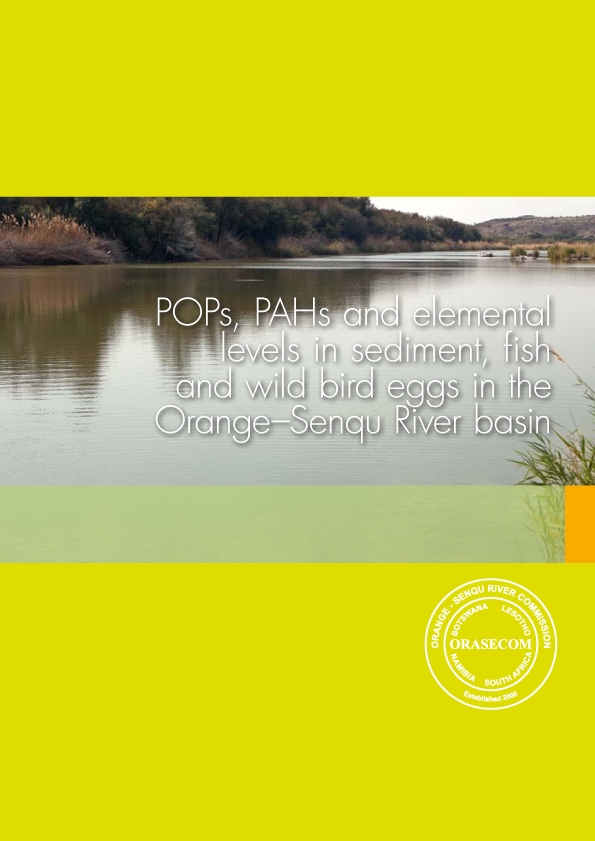 | POPs, PAHs and Elemental Levels in Sediment, Fish and Wild Bird Eggs in the Orange–Senqu River BasinThe Preliminary Transboundary Diagnostic Analysis of the Orange–Senqu River Basin (2008) noted several knowledge gaps, among them the lack of basin-wide and consistently gathered information on persistent organic pollutants (POPs) and heavy metals. This report details the findings of a study that addresses these gaps. It also examines levels of polycyclic aromatic hydrocarbons (PAHs) and provides an assessment of the risks these pollutants pose to human health. ORASECOM Report 002/2013; Written by Hendrik Bouwman, Rialet Pieters, Bettina Genthe & Jessica Chalmers, 2011; © ORASECOM 2013; ISBN 978-0-620-56533-2 |
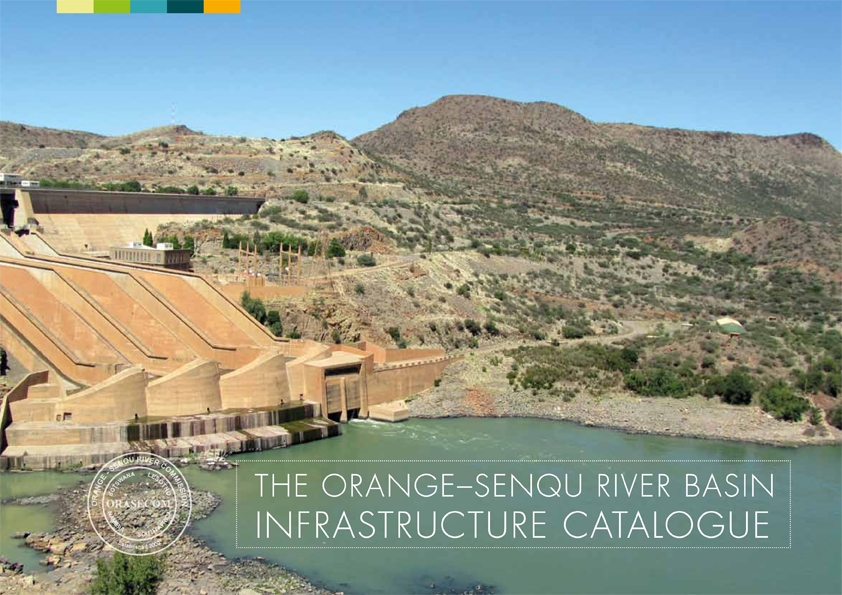 | Orange–Senqu River Basin Infrastructure Catalogue, 2nd editionThis publication provides facts and figures about the structures built in the Orange–Senqu River system and how these are used to manage the river’s surface water resources to meet the human demands placed on them. Compiled from a variety of authoritative sources, it provides information, photographs, diagrams, and other pertinent information on transfer schemes, reservoirs, gauges, water purification works and wastewater treatment works. ORASECOM Report 001/2013; Compiled by Allan Bailey of Royal Haskoning DHV; © ORASECOM 2013; ISBN 978-0-620-56635-6 |
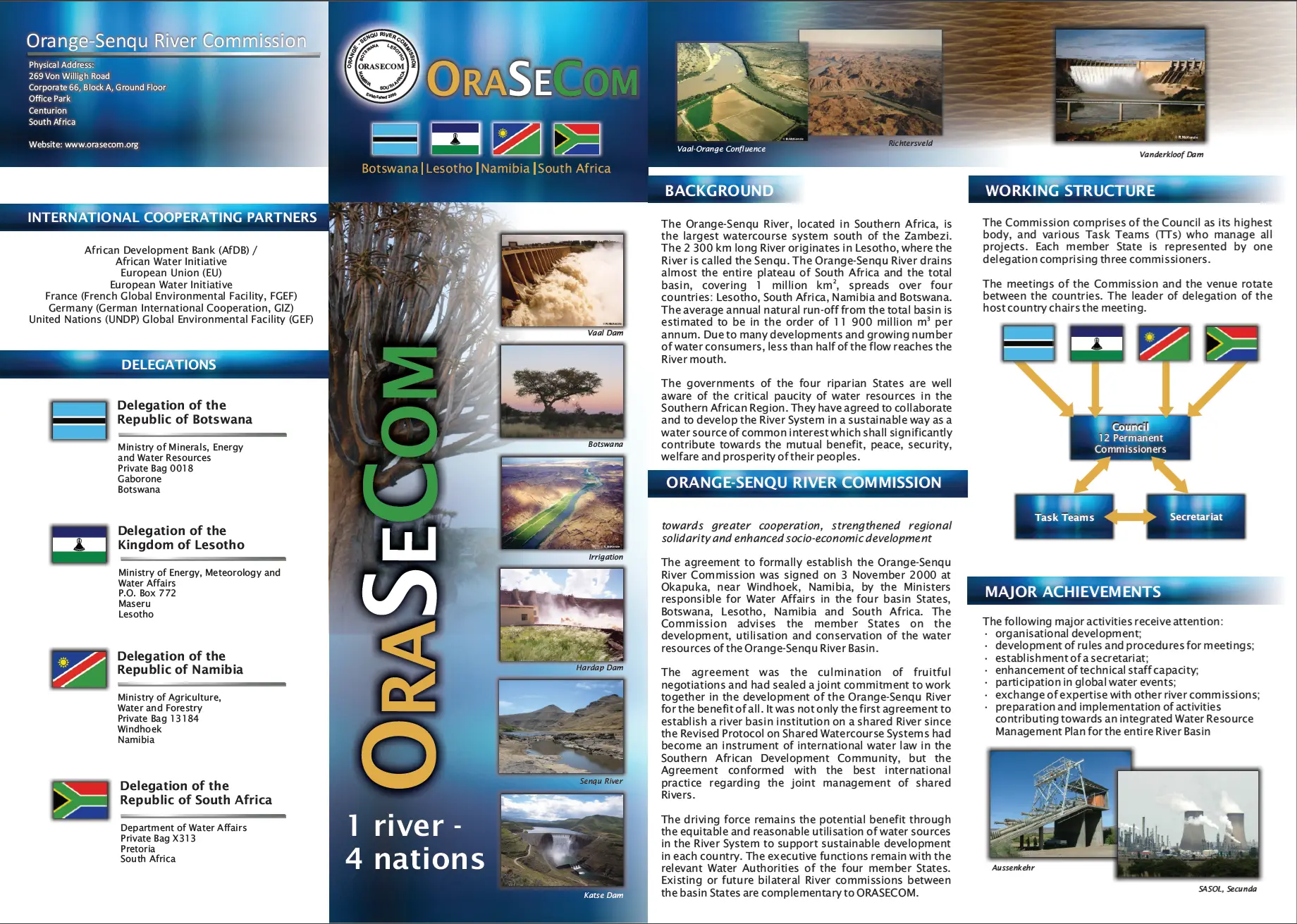 | ORASECOM General Background PamphletThis pamphlet provides general background on ORASECOM including the structure or the organisation, some major achievements, and basic fact and figures regarding the River Basin. |
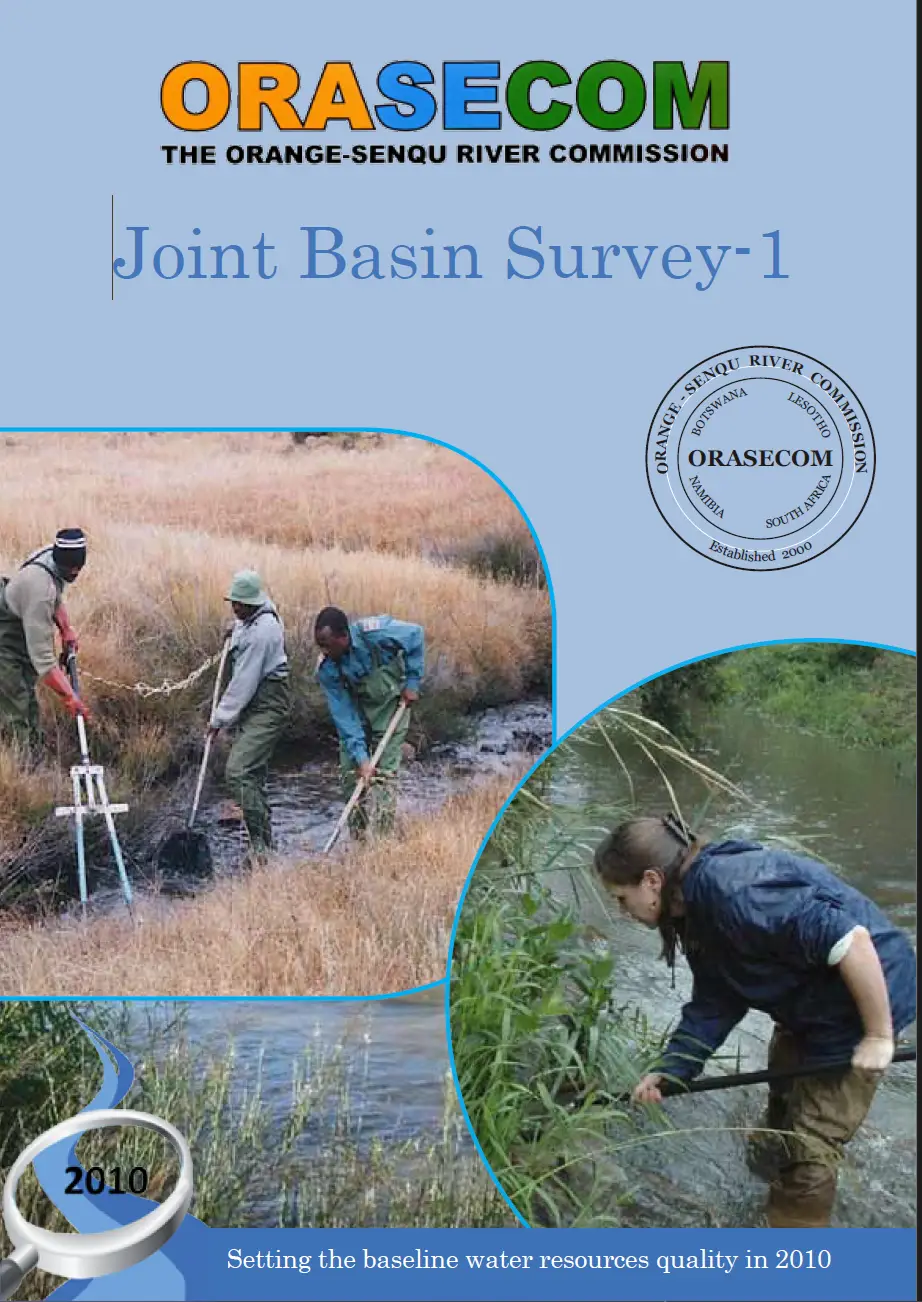 | Joint Basin Survey 1: 2010 - BookletThe intention of JBS-1 is to provide a snapshot of the quality of the water resources of the basin in 2010. This may serve as a baseline against which future improvements can be measured. The survey will be the first joint monitoring of the Orange-Senqu basin supported by all the Contracting Parties working together, and will provide assessments for a wide range of water quality, aquatic ecosystem health and ecosystem habitat (hydro-geomorphology) parameters. |
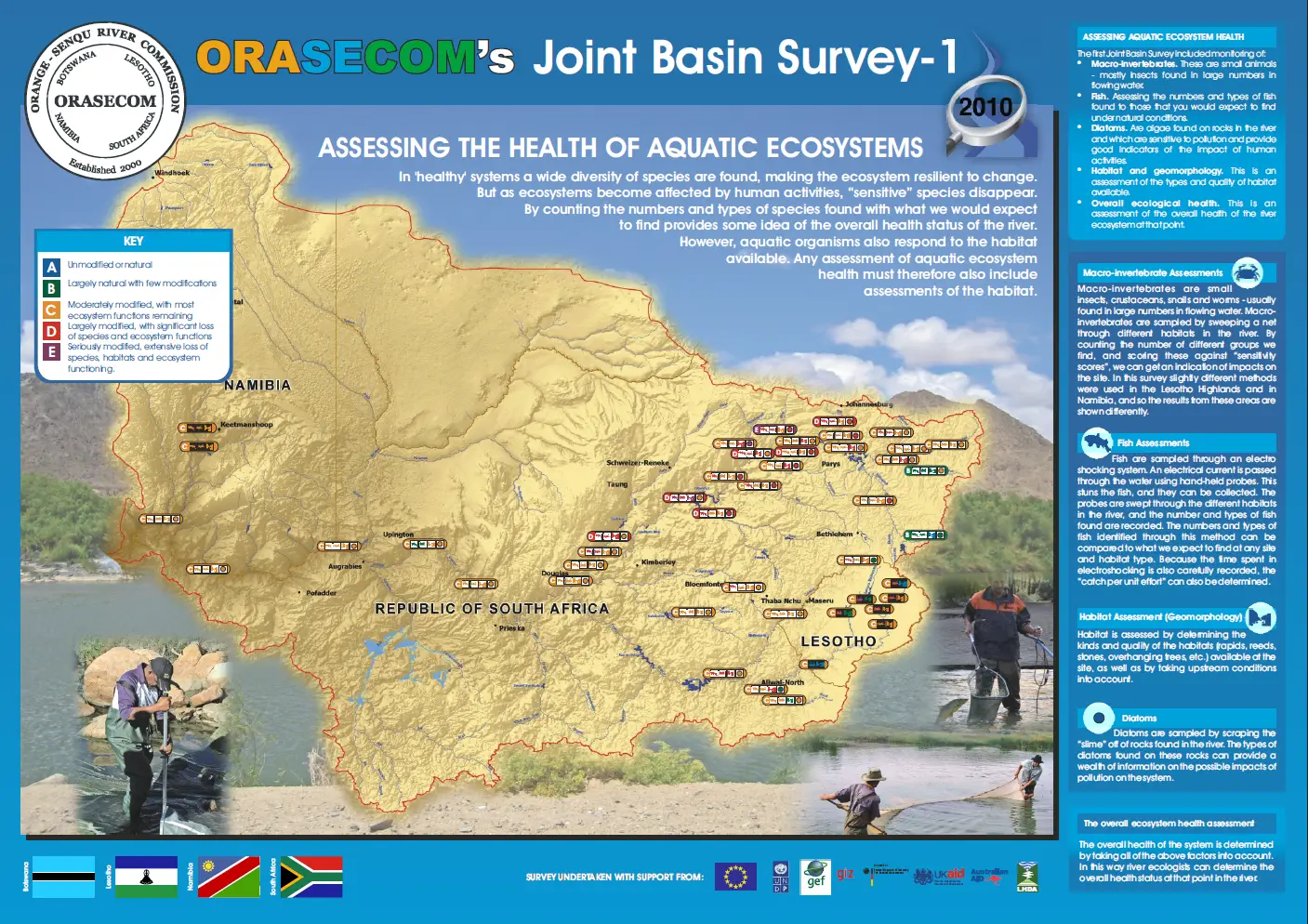 | Joint Basin Survey 1: 2010 - Aquatic Ecosystem Health PosterThis poster provides an overview of the Aquatic Ecosystem Health of the Orange Senqu River Basin as surveyed during the Joint Basin Survey of 2010. |
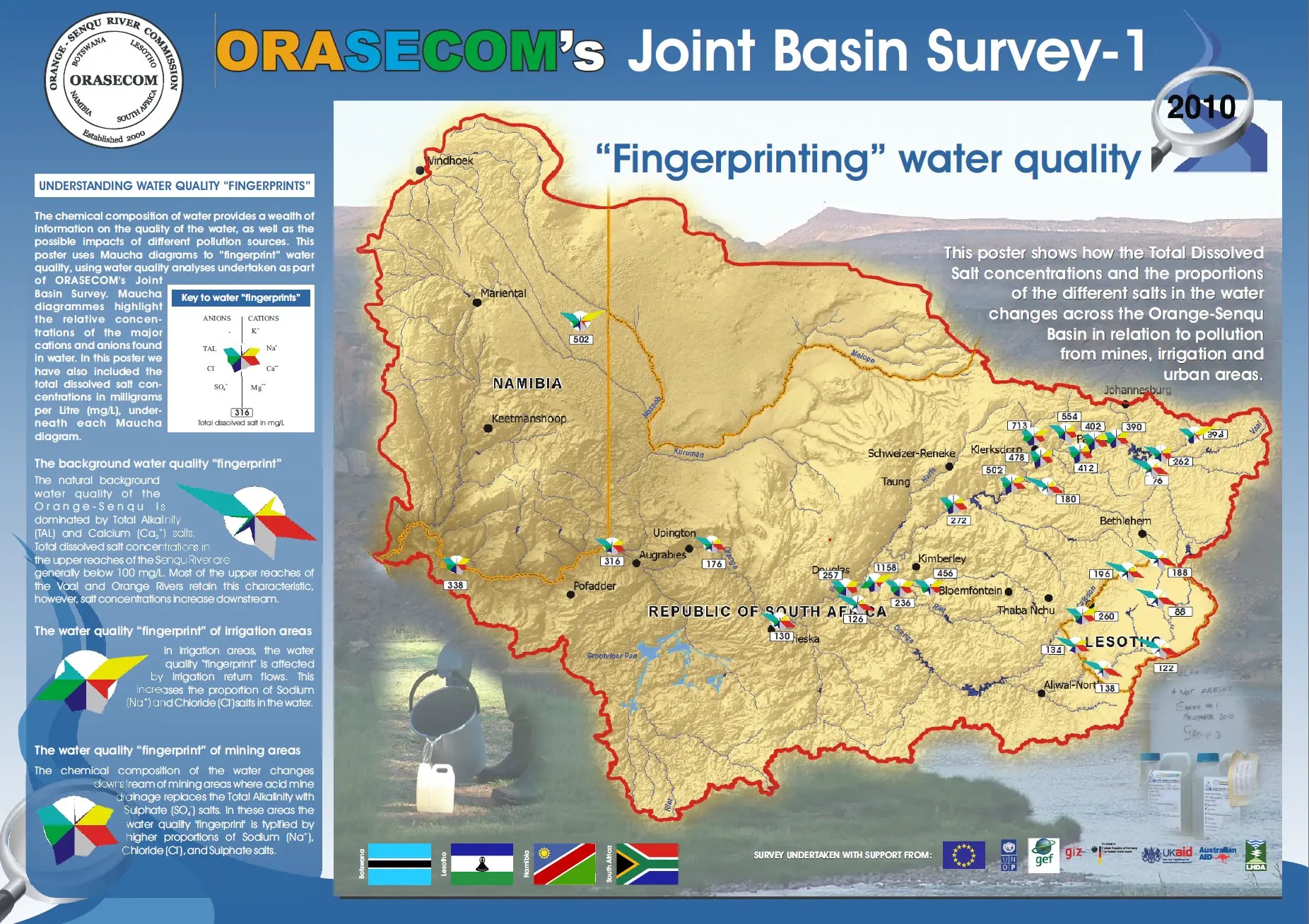 | Joint Basin Survey 1: 2010 - Fingerprinting water quality PosterThis poster shows how the Total Dissolved Salt (TDS) concentrations and the proportions of the different salts in the water changes across the Orange-Senqu Basin in relation to pollution from mines, irrigation and urban areas. |
